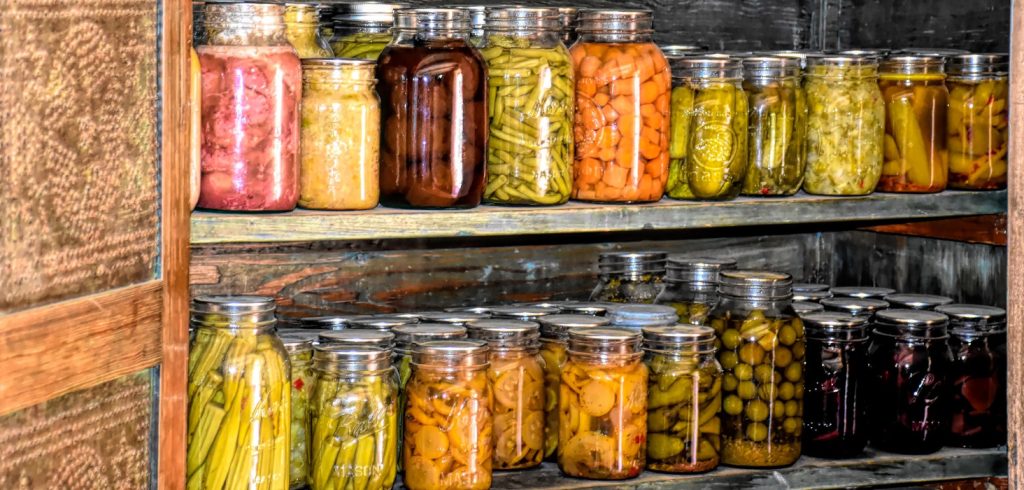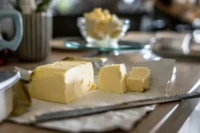
Storing Baby Formula in Mylar Bags
As a prepper, you understand the importance of being prepared for any situation. When it comes to ensuring that your baby’s nutritional needs are met

For me personally a self-sufficient lifestyle also involves a certain level of preparedness in case of an emergency. I’m not talking about the end of the world and doomsday prepping. However, there are several emergency scenarios which can potentially happen and affect you in New Zealand, such as strong earthquakes, tsunamis, floods or just power outages or as a recent example, a pandemic, where certain things might just not be available for a while. Here is a small beginners guide on items that we think you should have at home to be more prepared for an emergency.
Having food and water at home is the most important step you should take for being prepared. No matter in what situation you are, you have to drink and you have to eat. Especially without water you wouldn’t be able to survive more than 3 days. Like we’ve seen in the beginning of level 4 lockdown in New Zealand, where people were ensured that there will be no food shortages, it happened that there were food runs and supermarket shelves were pretty empty. Now imagine what could happen when there actually were real food shortages, because of failing supply chains. Especially in those situations it pays to have a well-stocked pantry. The Civil Defense New Zealand recommends a food and water storage for at least two weeks. Personally, I would rather go for at least a month. I recon if everybody had at least that food runs would be way less likely to happen.
When stocking up on food, of course should do so when supermarket shelves are well stocked. For people who are stocking up on food on a tight budget I recommend buying it step by step. So, every time you go shopping you simple buy a couple of extra cans, pasta or rice. It also pays to look out for specials. Make sure that you rotate the older items in your pantry out before opening the newer stuff.
Fortunately having an independent water supply in New Zealand isn’t very hard in most places. Most rural places either have a rainwater tank or borehole and thus are self sufficient (provided you have a means of pumping water during a power outage). In an urban area, having access to water after a disaster can be more difficult and it is advisable to have at least some water stored. Calculate with approximately 3 litres per person per day. I also think it is a very good idea to have a means of filtering water from unknown sources. In the future we will have something on that regard as well that will enable you to even make the most murky and polluted water drinkable.
Last but not least don’t forget you pets. When having pets, you should be able to care for them in a survival situation as well. So, keep sufficient pet food and water for them too.
A power outage can happen all the time. Especially during storms or heavy rains we quite often have power outages. And while the power companies are usually very quick at sorting those minor faults out it is important to have some sort of light source. Sitting at home during a power outage when it is dark outside isn’t too much of a fun experience and winter nights can be rather long. In case you rely on torches don’t forget to have a sufficient supply on batteries as well. Or get a dynamo driven torch.
Another Item you should have at home all the time is a good tarp. Earthquakes or heavy storms can quite easily parts of your house or car. Having a tarp to cover those damages up will protect your property from rain and moisture. They are also very handy in case you had to evacuate your house on a rainy day to use as a rain cover. Therefore, I would advise you to store the tarps somewhere outside of your house, for example in a garden shed.
Rubbish bags are another inexpensive item which are worth keeping a couple of rolls at home. Besides their common use of storing rubbish in a hygienic way, in case the rubbish collection isn’t operating for a week or two. They are also great for storing all sorts of items protected against moisture.
Another thing you should have at home in case of a disaster is some means of acquiring information. Depending on what is happening (power outage) the internet might not be working anymore and even phone lines might be compromised. Some radio stations however will have emergency power and continue to broadcast information. In this case a battery or dynamo powered radio is a very good thing to have. We do offer an emergency hand cranked radio with a flashlight and a USB charger for this very case. it doesn’t rely on batteries and can operate in almost every situation.
Well in every household every now and then something breaks down or does get damaged. For sure you could just have somebody come over and fix it, but first of all that can be rather expensive and secondly, like we’ve seen during the lockdown, sometimes you just don’t have the possibility to get something fixed by someone else anytime soon. In that case it is advisable to have at least a basic toolset with screwdrivers, a hammer, a set of spanners and a saw at home. In addition to that, you should stock some materials like nails, screws and wood glue as well, because a hammer without a nail isn’t worth much. Another item to stock is duct tape. Although not a tool by definition, (for some people it is) you can use for all sort of things. The question of what kinds of tools you should have always depends on your situation. For example, when you have a wood burner at home, you will likely already have a chainsaw and a good ax. However, when working with tools and machinery be aware of your own skills and don’t over estimate yourself and get hurt.
As a homesteader or someone who tries to live self-sufficiently you are going to do a lot of physical work. Therefore, cuts and bruises are rather common. Also, headaches or other little ailments can always happen. Depending on the situation it might not be necessary to see a docter immediately. However, we strongly do suggest to always seek professional medical advice if your sickness or injury is more than just a minor bruise and if it gets worse. Still it is good to keep a certain supply of medical supplies and a well-equipped first aid kid, that you have on hand when needed. In your medical supplies stock, I would recommend to keep at least Ibuprophen or paracetamol, something against a bad tummy, medication for a cold, wound disinfectant and an antiseptic ointment, something against minor burns and something to stop heavier bleeding.
Most importantly don’t forget to stock some extra packs of any medication you might need for chronically illnesses. Furthermore, you should also keep a supply of plaster and sterile wound dressings and bandages for first aid. For everything you keep make sure that you have the skill to use it in the right way. In my opinion it is also advisable to visit a first aid course every now and then and inform yourself about first aid procedures online.
Currently in a pandemic, I would also recommend to keep an appropriate stock of facemasks and gloves as protection against the spread of diseases. Handling of PPE in a hygienic way and disposing it correctly is also very important. We will cover this in depth in a future article.
The best food storage isn’t worth much when you don’t have any possibility to prepare your food in case of a power outage. Most of the long term stored food like pasta, rice or died beans have to be cooked before eating. You should thus have some method of cooking food that does not rely on power at hand. In case you don’t have a gas stove, the most convenient thing to have would be a gas fueled BBQ with at least one spare bottle. In case you don’t have the space for a full-size BBQ, a camping stove will do as well. When relying on gas to heat your food during an emergency make sure to store enough gas for at least two weeks.
The big advantage of these items is, you don’t have to use them for emergencies only. Many people will have a BBQ anyway, and if you are into bushcraft or longer hiking trips you will surely already have a small camping stove.
As dumb as it may sound but also is important to have something to keep your mind occupied in a survival situation. Most of our today’s entertainment is based on electricity. If the grid goes doen access to Netflix and your Smartphone will be severely limited or entirely gone. And as I already mentioned evenings without electricity can be very long. Therefore, you should have something at home you can do in your free time which works without electricity. What you keep should depend on your interests. Personally, I would suggest board or card games, books (and a light source) or if you are a creative person you can also keep wool for knitting and crocheting, do some stitching or other crafting.
We consider this more of a good to have instead of a must have, but it is very convenient to have some alternative way of generating electricity at home. It could either be a classic petrol power generator (and some extra fuel) or solar panels and batteries. This will enable you to keep your most important appliances such as fridge, freezer and the water pump running at least intermittently.

As a prepper, you understand the importance of being prepared for any situation. When it comes to ensuring that your baby’s nutritional needs are met

If you’re a fan of probiotic-rich foods, you’ve probably heard of kefir. This tangy, fermented drink is packed with beneficial bacteria and yeast, making it

Making your own butter at home is a rewarding and surprisingly simple process. With just a few basic ingredients and tools, you can create rich,
We are on Maternity Leave. Shop is closed till the 25th of November. All incoming orders will be shipped when we're back :) Dismiss